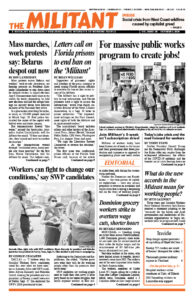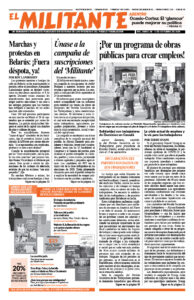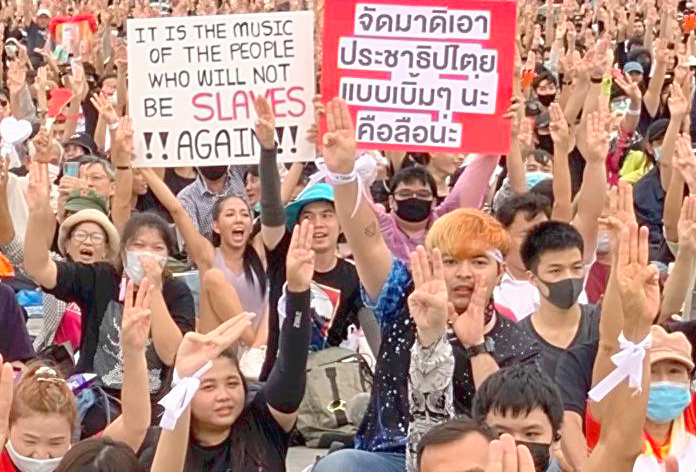Six years ago Thailand’s military rulers “declared war against the people by staging a coup. Now it is time to declare we are fighting back,” Parit Chiwarak told the Washington Post Sept. 19, before joining tens of thousands protesting for greater political rights.
Months of a government-enforced state of emergency have failed to prevent student-led protests. They are demanding the ouster of Prime Minister Prayuth Chan-ocha, new elections and a halt to the military-dominated regime’s threats and intimidation against its opponents. Some also call for curbs on the powers of the country’s king, the official head of state.
Prayuth, himself a former general, was installed as prime minister by the military-appointed upper house of parliament, despite his party losing last year’s election. Prayuth had orchestrated a military-led coup to topple the elected government in 2014. Protests began after a February court ruling dissolved opposition party Future Forward and banned its leaders from political activity for 10 years.
The protests are also fed by the economic and social crush facing working people in Thailand brought on by the twin crises of the coronavirus pandemic and falloff in capitalist production and trade. They have continued to grow in size, gaining some support from the Thai labor movement, which is sharply restricted by the government.
Some 2.5 million Thais are now out of work, the highest unemployment rate since the international financial crisis in 2009.
“When you gather in mobs, you are creating an enormous risk of new infections,” Prime Minister Prayuth said Sept. 17, attacking the demonstrations. “Your protests delay economic recovery.”
Anusorn Unno, a protester and lecturer at Bangkok’s Thammasat University, told Reuters, “COVID is the government’s last card, the only trick left up its sleeve, to undermine the legitimacy of the protests.”


